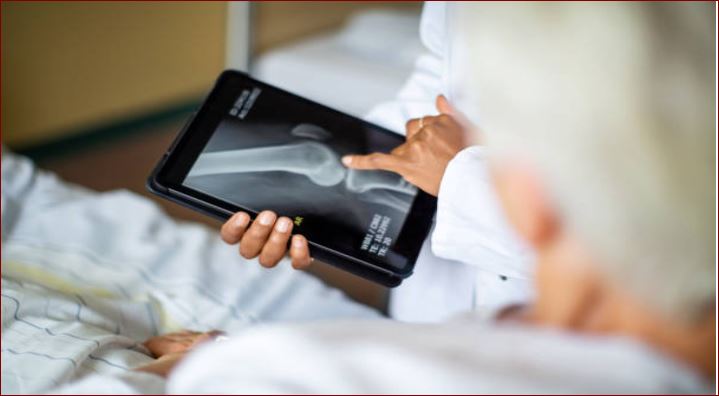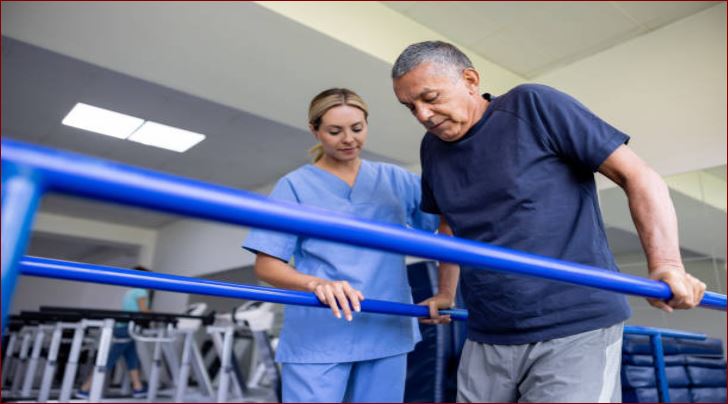Bone health is vital at every stage of life, but it becomes especially critical as we age. Our bones provide structure, protect vital organs, and enable movement, influencing our overall well-being.
Older adults face a higher risk of osteoporosis and fractures, but by adopting proactive measures, bone loss and related conditions can often be prevented or minimized.
This article focuses on helping older readers understand the importance of bone health while also highlighting why it’s crucial to prioritize it at any age. We will explore bone health, why it matters, factors that affect it, and practical ways to maintain strong bones.
Whether you’re in your golden years or just starting to think about your long-term health, we’ll provide valuable insights into keeping your skeletal system strong and resilient.
What is bone health?
Bone health refers to the strength and density of bones, which are dynamic structures that support the body and protect organs. Bones are composed of a hard outer layer and a spongy inner structure, providing strength and flexibility. They undergo a continuous remodeling process, replacing old bone tissue with new tissue and maintaining bone integrity.
Peak bone mass, typically reached in early adulthood, is the maximum amount of bone tissue a person has. Achieving a high peak bone mass is significant because it can help reduce the risk of osteoporosis and fractures later in life. As we age, bone density naturally decreases, making it essential to adopt healthy habits early on. Factors such as genetics, nutrition, and physical activity play a crucial role in determining bone health.
Understanding bone health involves recognizing that our skeleton is not a static structure but a dynamic system that requires ongoing care and attention throughout our lives to maintain its strength and functionality.
Why is bone health so important?
Bone health is crucial for several reasons, directly impacting our overall well-being and quality of life. They provide structural support, protect vital organs such as the brain and heart, and enable movement by anchoring muscles and tendons. Bones are a storehouse for essential minerals, particularly calcium and phosphorus, vital for various bodily functions.
Poor bone health can lead to severe conditions, most notably osteoporosis – a disease characterized by low bone mass and structural deterioration of bone tissue. In the United States, approximately 10 million adults have osteoporosis, while another 44 million have low bone mass, placing them at increased risk for the condition.
The consequences of poor bone health can be severe. Osteoporosis-related fractures are a significant health concern, particularly for older adults. Each year, osteoporosis causes about 2 million fractures in the U.S., with hip fractures being especially debilitating. About 20% of seniors who suffer a hip fracture die within one year due to complications.
Beyond fractures, poor bone health can lead to chronic pain, reduced mobility, and decreased independence. It can also contribute to a heightened risk of falls, which are a leading cause of injury among older adults. Maintaining strong bones is essential for preserving our ability to lead active, independent lives as we age.

What affects bone health?
Several factors influence bone health throughout our lives. Age is a primary factor, as bone density naturally decreases as we age. After age 30, bone mass begins to decline, with the rate of loss accelerating for women after menopause.
Diet plays a crucial role in bone health. Adequate calcium and vitamin D intake is essential for building and maintaining strong bones. Vitamin D helps the body absorb calcium, making these nutrients work in tandem.
Physical activity, particularly weight-bearing exercises and resistance training, stimulates bone formation and helps maintain bone density. Conversely, a sedentary lifestyle can accelerate bone loss.
Hormonal changes significantly impact bone health. The drop in estrogen during menopause leads to increased bone loss in women. In men, low testosterone levels can also affect bone density.
Certain medications, such as long-term use of corticosteroids, can negatively impact bone health. Lifestyle factors like smoking and excessive alcohol consumption can interfere with calcium absorption and increase the risk of osteoporosis.
Other factors affecting bone health include body weight (being underweight increases osteoporosis risk), certain medical conditions (like celiac disease or inflammatory bowel disease), and family history of osteoporosis.
How to look after your bones
Caring for your bones requires a combination of nutritional strategies, regular exercise, and healthy lifestyle choices. A diet rich in calcium and vitamin D is fundamental. Include foods like dairy products, leafy greens, fortified cereals, and fatty fish. Sunlight exposure can also boost vitamin D levels, though supplements may be necessary for some individuals.
Exercise is equally important. Engage in weight-bearing activities like walking, jogging, dancing, and muscle-strengthening exercises like resistance training. These activities help maintain and even improve bone density. Health professionals, such as those who have completed the Rockhurst University online dual nurse practitioner programs, can provide tailored advice on safe and effective exercises to support bone health.
Lifestyle changes are crucial. Quit smoking and limit alcohol consumption, as both habits weaken bones. Regular health check-ups are also essential; talk to your doctor about bone density testing, especially if you’re over 50 or have risk factors for osteoporosis.
Fall prevention is key for older adults. Strengthen your balance with exercises like yoga or tai chi, and make your home safer by removing tripping hazards.
By incorporating these habits into your routine, you can build and maintain strong bones, ensuring better mobility and reduced risk of fractures.
The road to maintaining lifelong bone health
Strong bones are essential for a healthy, active life, especially as you age. By understanding what impacts bone health and adopting habits like a balanced diet, regular exercise, and routine check-ups, you can protect your bones at any age. Prioritizing bone health reduces the risk of fractures and improves quality of life, ensuring you remain mobile and independent. Start taking steps today to safeguard your bone health—it’s a lifelong investment in your well-being.
DISCLAIMER – “Views Expressed Disclaimer: This article is not intended to be a substitute for professional medical advice and should not be relied on as health or personal advice. Always seek the guidance of your doctor or other qualified health professional with any questions you may have regarding your health Views and opinions expressed are those of the authors and do not reflect the official position of any other author, agency, organization, employer or company, including NEO CYMED PUBLISHING LIMITED, which is the publishing company performing under the name Cyprus-Mail…more






Click here to change your cookie preferences